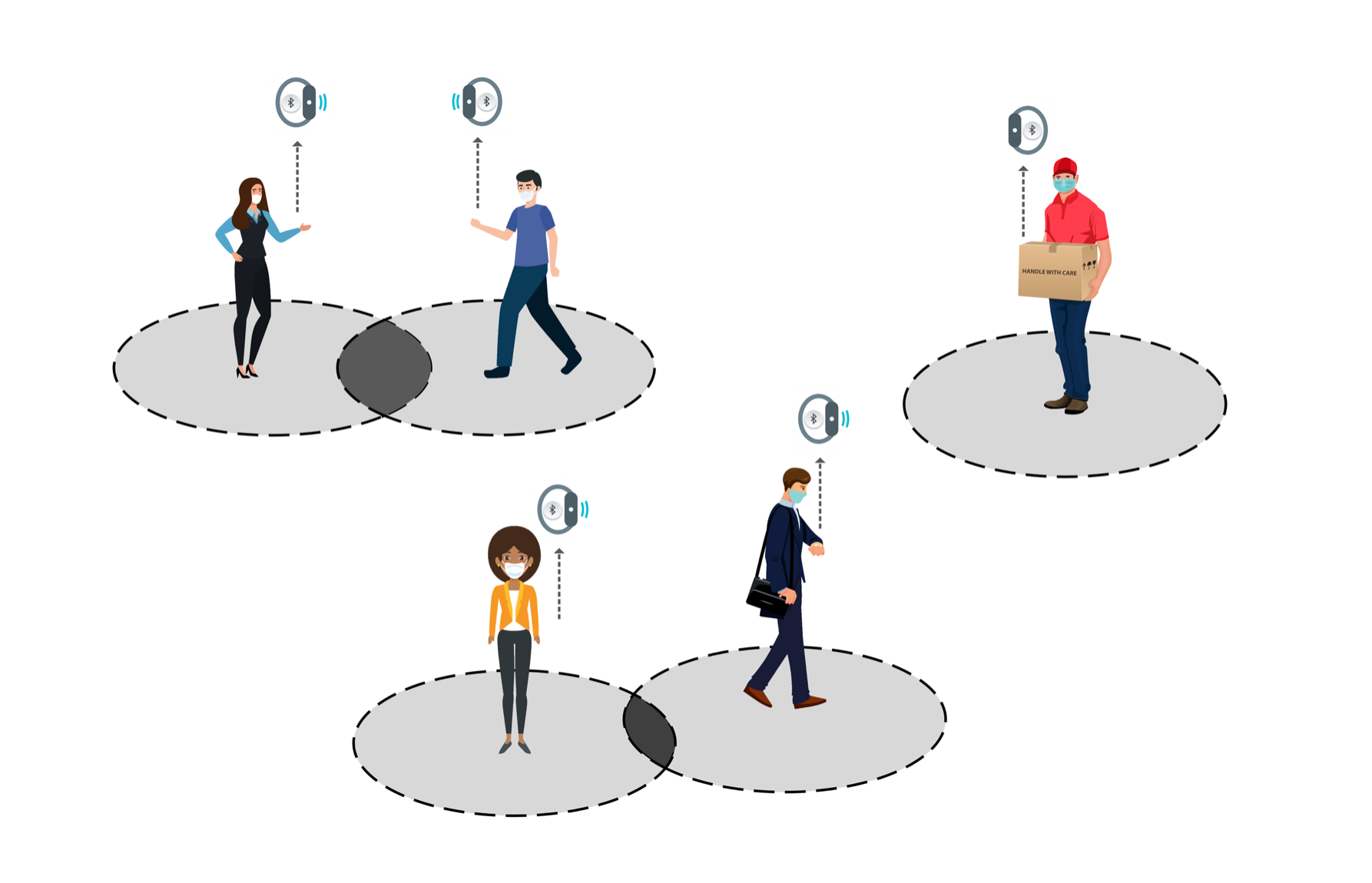Kids, and sometimes students, may struggle to maintain the recommended 6 feet of physical distance. A device that alerts them when they get too close to a classmate could help prevent infection from spreading, but outfitting kids and those students from low-income families with smartphones and connected wearables comes with price and privacy concerns. Members in UF’s Warren B. Nelms Institute for the Connected World, Department of Computer & Information Science & Engineering, and Department of Electrical and Computer Engineering has a low-cost, privacy-preserving solution: a wristband that uses Bluetooth Low Energy (BLE) signal strengths to detect when its wearers are too close together, signaling them with a light and vibration. BLE signal strength (RSSI) and transmission power level (TX_power) are used by novel distance estimation and classification algorithms, to notify users if they are within a specified distance range (e.g., less than 6ft) of another person. The detected signals can also be stored locally on the wearable device for: 1) preserving privacy and 2) estimating exposure risks as needed.
Beyond alerting kids when they’re not distancing, the bands could help with contact tracing. Data from a classroom’s bands can be uploaded to the cloud at the end of each day, so if a student gets sick, health-care professionals can see which devices were in close contact.
This project addresses the issue of social distancing in traditionally crowded settings, such as K-12 schools, and universities, among others. The basic work of designing the algorithms for measuring distance between people and adapting the software into a wearable band has been completed, and the project is now at the stage of gathering data to evaluate the band’s accuracy in a group of people.

The research team members include:
Yier Jin, Director of Academic Programs for the Warren B. Nelms Institute for the Connected World and Associate Professor and IoT Term Professor, Department of Electrical & Computer Engineering
My T. Thai, Associate Director of the Warren B. Nelms Institute for the Connected World and UF Research Foundation Professor, Department of Computer & Information Science
Ahmed Helmy, Professor and Graduate Director, Department of Computer & Information Science
Haoqi Shan, Ph.D. Student, University of Florida
